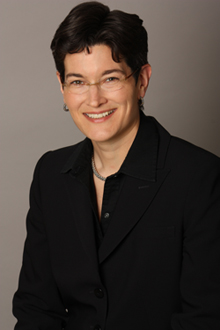
National Pride Month is celebrated every June in honor of the 1969 Stonewall riots—the unofficial beginning of the LGBTQ civil rights movement. It’s a time to take stock of accomplishments, celebrate progress, and promote acceptance.
But it’s also a time to recognize the work that remains to be done toward LGBTQ equity, including the education space.
That’s the focus of this year’s Equity in Education Program at the ILA 2018 Conference, which takes place July 20–23 in Austin, TX.
The program begins with Literacy and Our LGBTQ Students: Starting and Sustaining Schoolwide Transformation, which features a short keynote by Eliza Byard, executive director of the Gay, Lesbian and Straight Education Network (GLSEN). The nation’s largest advocacy group focused entirely on K–12 education, GLSEN uses curricula, books and other campus-wide programs and initiatives to create safe and LGBTQ-inclusive schools for all.
Byard will also lead a conversation on literacy’s role in ensuring educational equity for our LGBTQ students. Panelists are Kris De Pedro, assistant professor at the College of Educational Studies at Chapman University; Amy Fabrikant, staff developer at the Morningside Center for Teaching Social Responsibility; Courtney Farrell, founder of the Journey Project; Jessica Lifschitz, Heinemann Scholar and fourth-grade teacher; Kate Roberts, author and literacy consultant; and Tim’m West, managing director of the LGBTQ Community Initiative at Teach for America.
Here are seven things you should know about them.
- They’re not all teachers. Supporting LGBTQ students is the responsibility of everyone in the school community. That’s why this year’s panel includes a cross-sector of researchers, advocates, authors, literacy coaches, staff developers, and more.
- They’re not all LGBTQ-identifying. Fabrikant wrote When Kayla Was Kayla about her own experiences with the daily challenges faced by transgender students in elementary school while Farrell was inspired by her work as a literacy specialist and by her own transgender child’s transition in 2016. Panelists will bring their unique identities and experiences to explore LGBTQ challenges in literacy education from a variety of vantage points.
- They’re digital dynamos. This year’s panelists are skilled in the art of media activism—they blog, give TED Talks, host podcasts and Twitter chats, and use other digital tools to give voice to the movement and foster supportive online communities.
- They bring an intersectional lens. As the head of Teach for America’s LGBTQ+ Community Initiative, West said he’s working to advance a more intersectional movement for educational equity. Panelists will explore the complex puzzle of race, gender, sexuality, and social justice and their interplay in the literacy classroom.
- They’re making headlines. From presenting to a roundtable forum hosted at the White House to honoring the LGBTQ advocacy work of top celebrities, they’re helping to change the way politics and culture interact with the LGBTQ community.
- They’re data-driven. De Pedro has spent the last decade researching urban educational policy, school reform, and the development of supportive and inclusive school and campus environments while Stachowiak’s research focuses on social justice education, equity literacy, literacy curriculum development, and gender studies. The conversation will weave anecdotal evidence with research-based insights.
- They’re authors. Roberts’ latest book, A Novel Approach, asks how we can teach whole class novels while still holding onto student-centered practices like readers workshop. She is also the coauthor of Falling in Love with Close Reading (with Christopher Lehman), DIY Literacy (with Maggie Beattie Roberts), and she co-wrote two Units of Study books on Literary Essay.
- They’re not afraid to say the wrong thing. Lifschitz said the panel will be a space where attendees can speak candidly and challenge their own biases and microaggressions without fear of being attacked. “We want it to be more than just a conversation where everyone just sits and nods their heads,” she said. “We want to push people into an area of discomfort.”
The program will continue on Sunday, July 22, when ninth-grade ELA instructor Cody Miller will lead a provocative conversation with some of today's hottest authors on the transformative power of LGBTQ texts.
Visit the iPlanner to learn more. Register for the ILA 2018 Conference at ilaconference.org.
Alina O’Donnell is the communications strategist at ILA and the editor of Literacy Daily